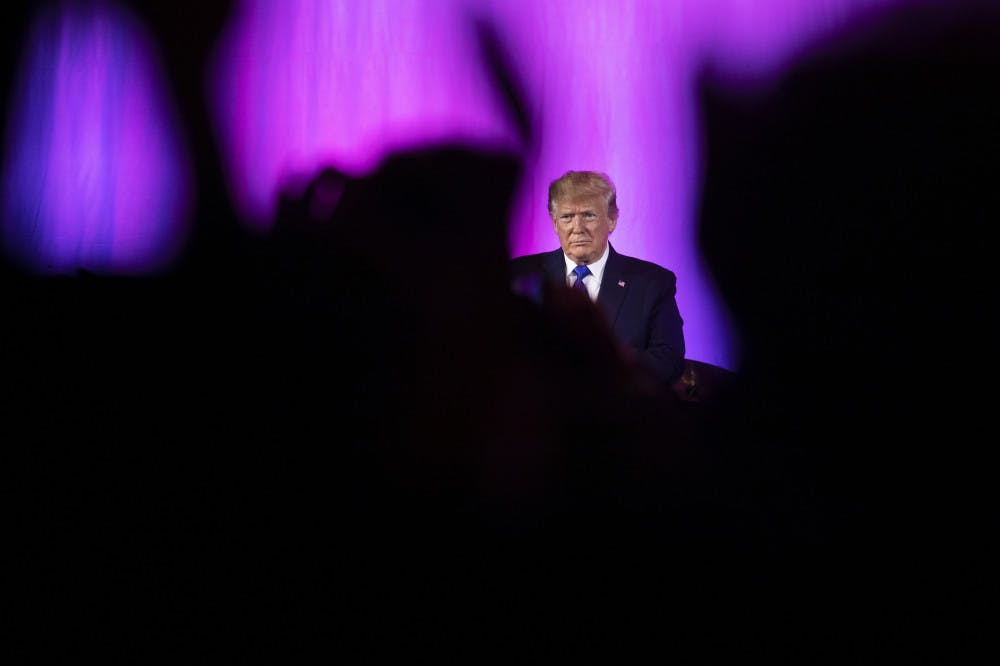Over a week ago, House Speaker Nancy Pelosi announced that the House of Representatives was launching an official impeachment inquiryinto President Donald Trump. The announcement came after reports emerged of an anonymous whistle-blower complaint regarding a phone call between Trump and Ukrainian president Volodymyr Zelensky. It was thought that Trump had pressured Zelensky during the call for political dirt on former Vice President Joe Biden in exchange for foreign aid. And before any details were known about the call, Pelosi accused Trump of “betraying his oath of office,” invoking the founders’s constitutional vision of impeachment to remove a sitting president.
However, now we know the details surrounding the call, and opponents of the president have failed to highlight any “high crime or misdemeanor,” which are the prerequisites for impeachment. Instead, politicians like Reps. Alexandria Ocasio-Cortez or Maxine Waters have used broad language to describe the president’s general, thematic misbehavior, diminishing the latest revelations as simply “another reason” to impeach. Their argument, though, has actually been articulated before, and it reflects the ones our framers had with each other at the constitutional convention.
After the Articles of Confederation failed to produce an orderly nation, Alexander Hamilton and James Madison penned the Federalist papers to advocate for a stronger federal government. Within Federalist Paper 65, Hamilton argued that the Congress should possess impeachment powers against the president, a necessary tool to enforce the idea of checks and balances.
But our framers disagreed on the grounds by which the president could be impeached. George Mason, for example, felt that the president should be impeached under the guidelines of “maladministration,” a broad legal term used by six states in the colonies to indicate bad, or corrupt, governance. Mason held this view because of his strong fear of tyranny. But Madison, often referred to as the “father of the Constitution,” objected to this terminology, saying, “so vague a term will be equivalent to a tenure during pleasure of the Senate”.
Madison correctly understood that factions, a term we now understand as political parties, would likely abuse this broad language to unfairly remove a duly elected president in the pursuit of political power. It would also weaken the federal government, which our framers were attempting to strengthen through the Constitution. Instead, the framers agreed upon the idea that impeachment proceedings would occur under the guidelines of “high crimes and misdemeanors,” a more concrete legal term found in English common law. Chief Justice John Marshall, for example, said, “It is used in a very old statute of that country whose language is our language, and whose laws form the substratum of our laws.” It encompassed crimes beyond treason and bribery but did not give factions the opportunity to weaken the federal government or easily pursue their own political interests.
It is clear that Democrat partisans view impeachment of Trump as Mason once did. They are certainly unhappy with Trump’s method of governance and want to see him removed from office one way or another. But as of now, there is no incident where Trump can be impeached under the Constitution’s guidelines. If Democrats continue to pursue this course, they risk making Trump the first U.S. president in history to be impeached and later go on to win reelection.
When the children of the future learn their presidential history, they might see this impeachment process as a battle between factions in pursuit of political power and the people who elected Trump as their president.
Anthony Leonardi is a UF political science senior
The crowd applaud as President Donald Trump concludes his speech at the Values Voter Summit in Washington, Saturday, Oct. 12, 2019. (AP Photo/Manuel Balce Ceneta)






